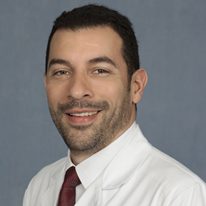
Obesity is one of the causes of heart disease, and a person is generally considered to be obese if his or her body mass index (BMI) is 30.0 or higher. Obesity also increases the risk for a number of health conditions such as type 2 diabetes, high blood pressure, sleep apnea, joint problems, gallbladder disease, stroke and some cancers.
Why Is Obesity One of the Causes of Heart Disease?
Studies have shown that people who are obese have a 104 percent increase in the risk of developing heart disease compared to those who are not overweight. Overweight or obese individuals are more likely to develop:
- High blood pressure
- Elevated levels of triglycerides and LDL (or bad) cholesterol
- Low levels of HDL (or good) cholesterol
- Inflammation in blood vessels
All of these conditions could increase heart disease risk.
Because obese people have more body fat, they have more body mass. The higher mass means more blood is flowing through the body – and the heart. This increased flow makes the heart work harder, resulting in more strain. Obese people also have more fatty molecules, such as cholesterol, in their blood. These fats can narrow blood vessels, making it harder for the heart to push blood throughout the body. Ultimately, obesity often leads to heart failure since the heart is overworked by having to pump more blood through constricted vessels.
Obesity Facts and Figures
23.9 million – Number of American children between the ages of 2 and 19 who are considered overweight
2,234 to 2,757 – Increase in calorie per day consumption from 1970 to 2003
5-10% – Amount of weight to lose that can help lower the risk of heart disease and other serious medical conditions
The final numbers are most important for ongoing health. Successful, sustained weight loss of about half a pound to 2 pounds a week occurs over an extended period of time. It requires getting regular exercise and eating a balanced diet that is lower in calories and saturated fat.
North Shore Medical Center is offering heart healthy screenings. Please call 1-833-955-1164 and schedule your screening.






Comments are closed.